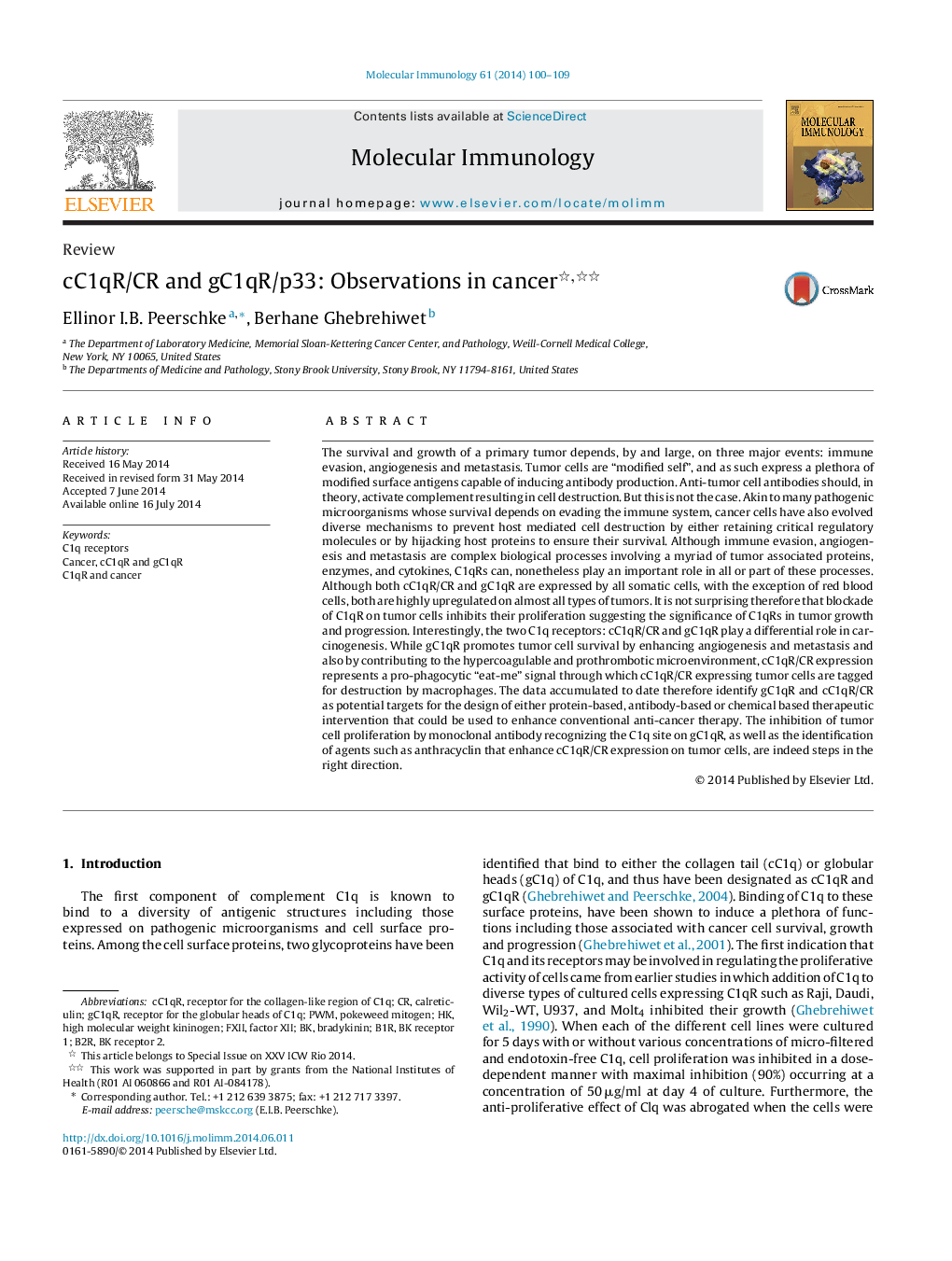| کد مقاله | کد نشریه | سال انتشار | مقاله انگلیسی | نسخه تمام متن |
|---|---|---|---|---|
| 5916852 | 1163759 | 2014 | 10 صفحه PDF | دانلود رایگان |
عنوان انگلیسی مقاله ISI
cC1qR/CR and gC1qR/p33: Observations in cancer
دانلود مقاله + سفارش ترجمه
دانلود مقاله ISI انگلیسی
رایگان برای ایرانیان
کلمات کلیدی
موضوعات مرتبط
علوم زیستی و بیوفناوری
بیوشیمی، ژنتیک و زیست شناسی مولکولی
زیست شناسی مولکولی
پیش نمایش صفحه اول مقاله

چکیده انگلیسی
The survival and growth of a primary tumor depends, by and large, on three major events: immune evasion, angiogenesis and metastasis. Tumor cells are “modified self”, and as such express a plethora of modified surface antigens capable of inducing antibody production. Anti-tumor cell antibodies should, in theory, activate complement resulting in cell destruction. But this is not the case. Akin to many pathogenic microorganisms whose survival depends on evading the immune system, cancer cells have also evolved diverse mechanisms to prevent host mediated cell destruction by either retaining critical regulatory molecules or by hijacking host proteins to ensure their survival. Although immune evasion, angiogenesis and metastasis are complex biological processes involving a myriad of tumor associated proteins, enzymes, and cytokines, C1qRs can, nonetheless play an important role in all or part of these processes. Although both cC1qR/CR and gC1qR are expressed by all somatic cells, with the exception of red blood cells, both are highly upregulated on almost all types of tumors. It is not surprising therefore that blockade of C1qR on tumor cells inhibits their proliferation suggesting the significance of C1qRs in tumor growth and progression. Interestingly, the two C1q receptors: cC1qR/CR and gC1qR play a differential role in carcinogenesis. While gC1qR promotes tumor cell survival by enhancing angiogenesis and metastasis and also by contributing to the hypercoagulable and prothrombotic microenvironment, cC1qR/CR expression represents a pro-phagocytic “eat-me” signal through which cC1qR/CR expressing tumor cells are tagged for destruction by macrophages. The data accumulated to date therefore identify gC1qR and cC1qR/CR as potential targets for the design of either protein-based, antibody-based or chemical based therapeutic intervention that could be used to enhance conventional anti-cancer therapy. The inhibition of tumor cell proliferation by monoclonal antibody recognizing the C1q site on gC1qR, as well as the identification of agents such as anthracyclin that enhance cC1qR/CR expression on tumor cells, are indeed steps in the right direction.
ناشر
Database: Elsevier - ScienceDirect (ساینس دایرکت)
Journal: Molecular Immunology - Volume 61, Issue 2, October 2014, Pages 100-109
Journal: Molecular Immunology - Volume 61, Issue 2, October 2014, Pages 100-109
نویسندگان
Ellinor I.B. Peerschke, Berhane Ghebrehiwet,